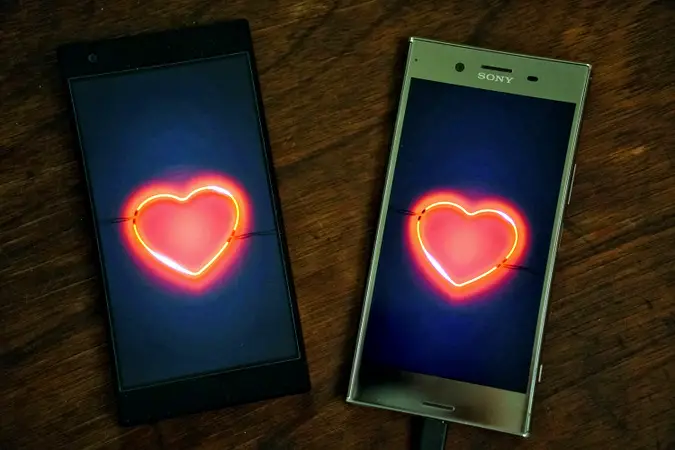Love in the Digital Age: How Technology is Revolutionizing Dating
The landscape of love and dating has undergone a seismic shift in recent years, thanks to the advent and evolution of technology.
From the way we discover potential partners to how we communicate and cultivate relationships, digital innovations have reshaped the romantic realm, offering new opportunities and challenges.


The Rise of Online Dating Platforms
The emergence of online dating sites has been a game-changer in how people meet and connect. These platforms offer a vast array of options that were unimaginable in traditional dating scenarios. They cater to diverse preferences and demographics, making the dating pool more accessible and varied than ever before.
The convenience and reach of online dating have democratized the search for companionship, allowing people to explore potential relationships beyond their immediate social circles and geographical boundaries.
- Democratization of Dating: Online dating platforms have democratized the dating scene. Unlike traditional dating, which often relied on social circles, physical locations, or chance encounters, online dating apps and websites provide a more inclusive and diverse platform for individuals to connect.
- Algorithmic Matchmaking: Modern dating apps employ sophisticated algorithms to suggest potential matches. These algorithms analyze user data such as interests, preferences, and behaviors, aiming to create more meaningful connections. This data-driven approach has revolutionized how individuals find compatible partners, transcending geographic, social, and even language barriers.
Transforming Communication in Relationships
The way couples communicate has been transformed by technology, fostering deeper and more immediate connections. Digital tools offer a variety of ways to stay in touch, share experiences, and express emotions.
This has led to a shift in relationship dynamics, where communication is constant and multifaceted. Technology also allows for more nuanced expressions of affection and understanding, bridging gaps that physical distance and time constraints once imposed.
- Instant Connectivity: Technology has enabled instant connectivity, allowing daters to communicate anytime and anywhere. This immediacy can accelerate relationship development, as constant communication fosters a sense of closeness and intimacy.
- Digital Expression: Digital platforms have introduced new forms of expression in romantic relationships. From emojis and GIFs to video calls and shared playlists, these tools allow individuals to express their emotions and share experiences in unique and personalized ways.
-

The Impact of Social Media on Relationships
Social media’s influence on romantic relationships is profound and multifaceted. It has become a platform for sharing relationship milestones and everyday moments, impacting how relationships are perceived both by the individuals involved and their wider social circles.
Social media can strengthen bonds through shared experiences and memories, but it can also introduce elements of comparison and scrutiny that were not present in pre-digital relationships.
- Public Display of Relationships: Social media platforms have become arenas for public displays of affection and relationship status. This visibility can add a new layer of social validation but also pressure to portray a certain image of relationship success.
- Connectivity and Comparison: While social media can keep partners connected, it also opens the door to comparisons with other relationships, potentially leading to dissatisfaction. The curated nature of social media content often presents an idealized version of relationships, which may not reflect reality.


The Challenges and Opportunities of Virtual Dating
The advent of virtual dating has opened up new avenues for forming connections. Triggered in part by global events such as the COVID-19 pandemic, virtual dating has allowed people to continue their search for companionship in a safe and adaptable format. It offers unique opportunities for creative and meaningful interactions without the constraints of physical proximity, changing the dating landscape dramatically.
- Virtual Date Experiences: The COVID-19 pandemic gave rise to virtual dating, where individuals engage in dates through video calls. This format has introduced new ways to connect, like virtual movie nights or online games, fostering connections despite physical distance.
- Safety and Convenience: Virtual dating provides a level of safety and convenience, particularly for initial interactions. It allows individuals to get to know each other in a low-pressure environment and can act as a screening tool before meeting in person.
The Future of Dating Technology
As we look to the future, the potential for technology to further revolutionize dating is immense. Emerging technologies like augmented and virtual reality promise to create even more immersive and interactive dating experiences.
However, this rapid advancement also brings with it the responsibility to address the ethical and societal implications of technology-driven dating, ensuring that the future of dating remains safe, respectful, and inclusive.
- Emerging Technologies: Looking ahead, emerging technologies like augmented reality (AR) and virtual reality (VR) are set to further transform the dating experience. These technologies could offer immersive and interactive ways for individuals to connect, such as virtual dates in simulated environments.
- Ethical Considerations: As technology continues to evolve, ethical considerations around privacy, data security, and the psychological impact of algorithm-driven dating are becoming increasingly important. Ensuring user safety and promoting healthy relationship dynamics in the digital realm will be crucial.


The digital age has fundamentally altered the landscape of love and dating, bringing a blend of opportunities and challenges.
As technology continues to evolve, it holds the potential to further revolutionize our understanding and experience of romantic relationships. Embracing this change while navigating its complexities will be key to finding love in the digital age.





















